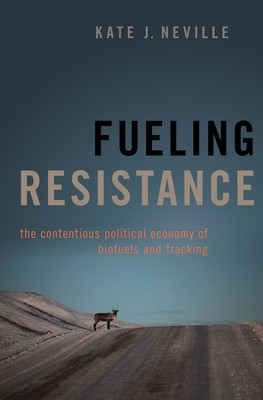
- We will send in 10–14 business days.
- Author: Kate J Neville
- Publisher: Oxford University Press, USA
- ISBN-10: 0197535585
- ISBN-13: 9780197535585
- Format: 15.8 x 23.6 x 2.5 cm, kieti viršeliai
- Language: English
- SAVE -10% with code: EXTRA
Reviews
Description
A series of concurrent pressures in the early 2000s--climate change, financial system crashes, economic development in rural regions, and shifts in geopolitics--intensified interest in alternative energy production. At the same time, rising oil prices rendered alternative fuels a more economically viable option. Among these energy sources, liquid biofuels (bioethanol and biodiesel) and natural gas derived from hydraulic fracturing ("fracking") took center stage as promising commodities and technologies. But controversy quickly erupted in surprisingly similar ways around both renewable fuels. Global enthusiasm for these fuels--and the widespread projections for their production around the world--collided with local politics in debates over "food versus fuel" and concerns over "land grabs." What seemed, from a global perspective, like empty lands ripe for development were, to rural communities, vibrant and already contested spaces. As proposals for biofuels and fracking landed in
specific communities and ecosystems, they reignited and reshaped old disputes over land, water, and decision-making authority.
EXTRA 10 % discount with code: EXTRA
The promotion ends in 22d.23:12:57
The discount code is valid when purchasing from 10 €. Discounts do not stack.
- Author: Kate J Neville
- Publisher: Oxford University Press, USA
- ISBN-10: 0197535585
- ISBN-13: 9780197535585
- Format: 15.8 x 23.6 x 2.5 cm, kieti viršeliai
- Language: English English
A series of concurrent pressures in the early 2000s--climate change, financial system crashes, economic development in rural regions, and shifts in geopolitics--intensified interest in alternative energy production. At the same time, rising oil prices rendered alternative fuels a more economically viable option. Among these energy sources, liquid biofuels (bioethanol and biodiesel) and natural gas derived from hydraulic fracturing ("fracking") took center stage as promising commodities and technologies. But controversy quickly erupted in surprisingly similar ways around both renewable fuels. Global enthusiasm for these fuels--and the widespread projections for their production around the world--collided with local politics in debates over "food versus fuel" and concerns over "land grabs." What seemed, from a global perspective, like empty lands ripe for development were, to rural communities, vibrant and already contested spaces. As proposals for biofuels and fracking landed in
specific communities and ecosystems, they reignited and reshaped old disputes over land, water, and decision-making authority.


Reviews